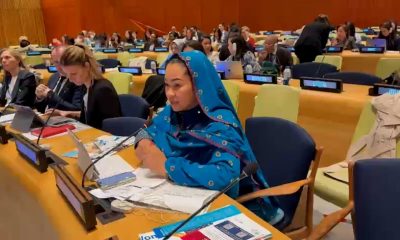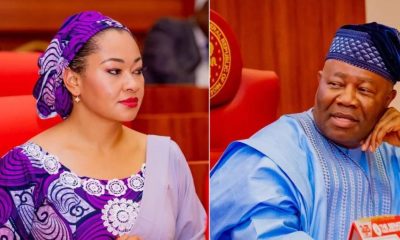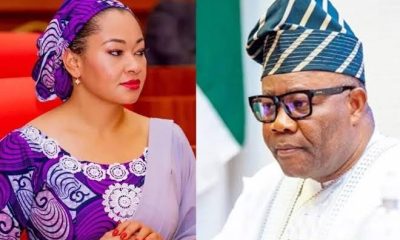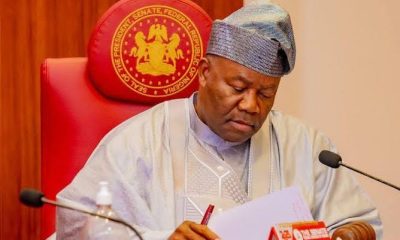Featured
Six Memorable Events That Influenced 10th Nigerian Senate in Y2024
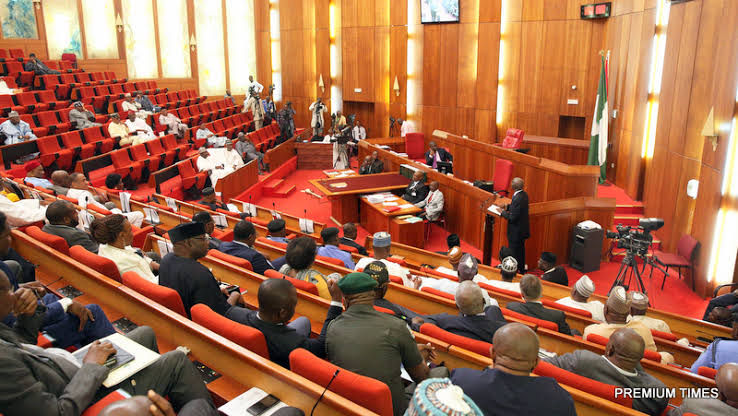
The year 2024 was a pivotal one for the Nigerian Senate under the leadership of Godswill Akpabio. Several key events marked the period and shaped both the legislative direction and public perception of the institution.
Eko Hot Blog reports that these events not only impacted national policy but also provided a deeper insight into the Senate’s internal dynamics and its relationship with the executive.
EDITOR’S PICK
- Seven Reasons Why Couples in the Journey of Parenthood Considers Surrogacy
- Lagos APC Confirms 37 LCDAs to Participate in 2025 Local Government Polls
- AfCFTA: Lagos Takes Bold Steps Towards Becoming Africa’s Trade Powerhouse
Here are six key events that shaped activities at the upper legislative chamber in 2024
1. Tax reform bills
The proposed tax reform bills transmitted to the Nigerian Senate by President Bola Tinubu in October 2024 have had a significant impact on the dynamics within the legislative body and highlighted existing regional disparities.
The main objective of these bills is to overhaul Nigeria’s tax system to enhance government revenue.
However, a particularly contentious aspect of these reforms is the proposed reallocation of Value Added Tax (VAT) revenue.
The proposed change would allow states that generate more VAT to receive a larger share, while reducing allocations based on population.
This has led to strong opposition from northern leaders who argue that it favors economically prosperous southern states.
The regional divide has been apparent within the Senate, with northern lawmakers, including some from the ruling All Progressives Congress (APC), expressing their strong disapproval.
This opposition has resulted in delays in the legislative process and to address the concerns raised by various stakeholders and allow for more consultations, the Senate suspended legislative action on the tax reform bills.
2. Abdul Ningi and the Budget Padding Allegations
Allegations of budget padding within the Nigerian Senate ignited a firestorm of public discourse in 2024.
Senator Abdul Ningi, representing Bauchi Central, accused the Senate of inflating the budget submitted by President Tinubu in November 2023, by adding N3.7 trillion, with untraceable projects.
The controversy deepened after Ningi openly voiced these allegations in an interview with the BBC Hausa Service, which led to his subsequent suspension.
This event significantly shaped public perception of the Upper Chamber and exposed its internal conflicts. Some members supported Ningi’s call for transparency, while others saw his actions as detrimental to the institution’s reputation.
The suspension further heightened concerns about the Senate’s commitment to transparency and accountability in its budgetary process.
Civil society groups and the general public perceived the suspension as an attempt to stifle calls for greater openness and scrutiny in the legislative process.
This incident also spurred calls for reforms to improve transparency and prevent similar occurrences in the future.
3. The Announcement of Old National Anthem
In May 2024, the Nigerian Senate passed a bill reinstating the original national anthem, “Nigeria, We Hail Thee,” which was in use from 1960 until its replacement by “Arise, O Compatriots” in 1978.
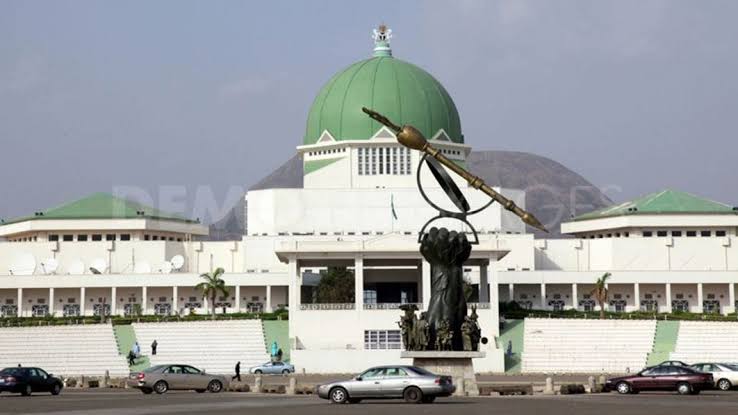
This decision sparked debates about the Senate’s priorities, with critics arguing that the focus on changing the national anthem diverted attention from more pressing national issues.
The swift passage of the bill raised concerns among the public and political analysts that the 10th Senate, like its predecessor, was acting as a “rubber-stamp” institution, merely endorsing decisions made by the executive branch without sufficient scrutiny or debate.
Critics argued that the Senate’s actions indicated a lack of independence and a failure to adequately represent the interests of the Nigerian people.
4. The need for Anti-open grazing bill
The Anti-Open Grazing Bill, which passed its second reading in the Nigerian Senate in June 2024, revealed deep-seated regional divisions among senators.
The bill, designed to address the ongoing conflicts between farmers and herders, proposes the creation of a National Animal Husbandry and Ranches Commission to regulate livestock management across Nigeria.
Northern senators have raised concerns that the bill could infringe on traditional herding practices and constitutional rights, arguing that it would disproportionately affect their constituents.
On the other hand, senators from the southern and middle-belt regions largely support the bill, seeing it as a necessary step to modernize livestock management and reduce conflicts between farmers and herders.
The debates surrounding the Anti-Open Grazing Bill further highlighted regional differences within the Senate, with senators advocating for policies that align with the interests of their respective constituents.
The bill’s progress through the legislative process remains uncertain, as it faces strong opposition from northern lawmakers and continues to expose deep divisions within the Senate.
5. The Untimely Demise of Ifeanyi Ubah
The untimely demise of Senator Ifeanyi Ubah on July 27, 2024, had a profound impact on the Nigerian Senate. Ubah, who represented the Anambra South Senatorial District, passed away in London at the age of 52 due to cardiac arrest.
Prior to his tenure in the Senate, he was a prominent businessman and philanthropist.
The Senate mourned the loss of Ubah, describing it as a significant setback for the Senate, his home state of Anambra, and the nation as a whole.
During a valedictory session held in his honor, Senate President Godswill Akpabio highlighted Ubah’s contributions to legislative processes and his dedication to national development.
Ubah’s passing necessitated a by-election to fill the vacant Anambra South Senatorial District seat.
The electoral process attracted several aspirants from different political parties, each seeking to represent the district and continue Ubah’s legacy.
6. ‘Kakistocracy’: The Ali Ndume Removal
The removal of Senator Ali Ndume as Chief Whip of the Nigerian Senate in July 2024 was a significant event with implications for the Senate’s internal affairs and its relationship with the executive branch.
Ndume’s removal came after he made critical statements about President Tinubu’s administration, referring to it as a “kakistocracy” and expressing concerns about the president’s accessibility to ministers.
Ndume’s removal as the Chief Whip of the 10th Senate occurred during a plenary session and was a result of a request made by the National Working Committee of the All Progressives Congress (APC).
His removal marked the second time the lawmaker had been stripped of a principal officer position in the Senate.
The incident sparked questions about the independence of the Senate and the consequences of dissent within the ruling party.
Critics argued that the removal highlighted the challenges the Senate faces in balancing party loyalty with its constitutional role as an independent legislative body.
FURTHER READING
- 222 Dead, 779 Injured in Oyo Road Crashes – FRSC
- Nigeria Expresses Sympathy Over South Korea Plane Crash
- Holiday Box Office Sees Fierce Movie Competition
Some political analysts viewed it as an attempt to suppress dissent and maintain party discipline.
Ndume’s removal was followed by his replacement with Senator Tahir Monguno, his counterpart from Borno North.
Despite being stripped of his position as Chief Whip, Ndume stood by his remarks, stating that he believed his criticism of the Tinubu administration did not warrant the punishment of losing his position as a principal officer of the senate.
Click here to watch video of the week
Advertise or Publish a Story on EkoHot Blog:
Kindly contact us at ekohotblog@gmail.com. Breaking stories should be sent to the above email and substantiated with pictorial evidence.
Citizen journalists will receive a token as data incentive.
Call or Whatsapp: 0803 561 7233, 0703 414 5611


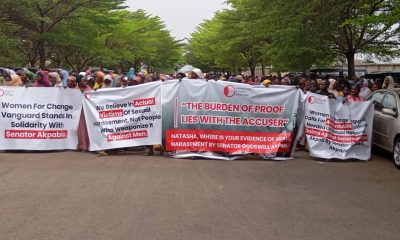

![[JUST IN] Natasha: Senate Passes Vote Of Confidence On Akpabio](https://ekohotblog.com/wp-content/uploads/2025/03/godswill-Akpabio--400x240.jpg)
![[JUST IN] Natasha: Senate Passes Vote Of Confidence On Akpabio](https://ekohotblog.com/wp-content/uploads/2025/03/godswill-Akpabio--80x80.jpg)
